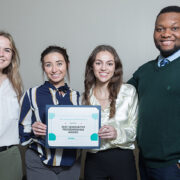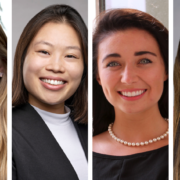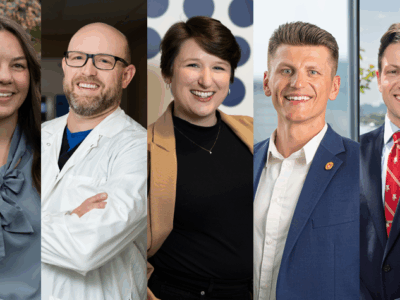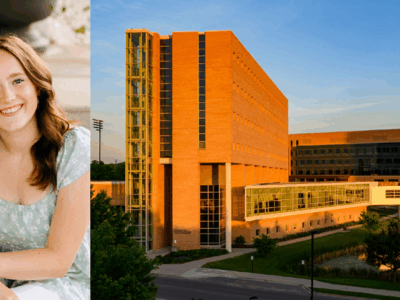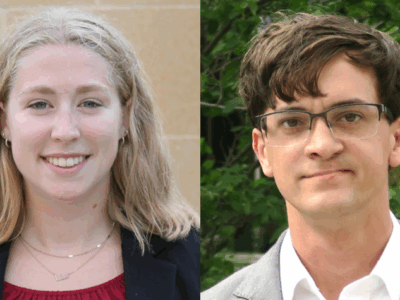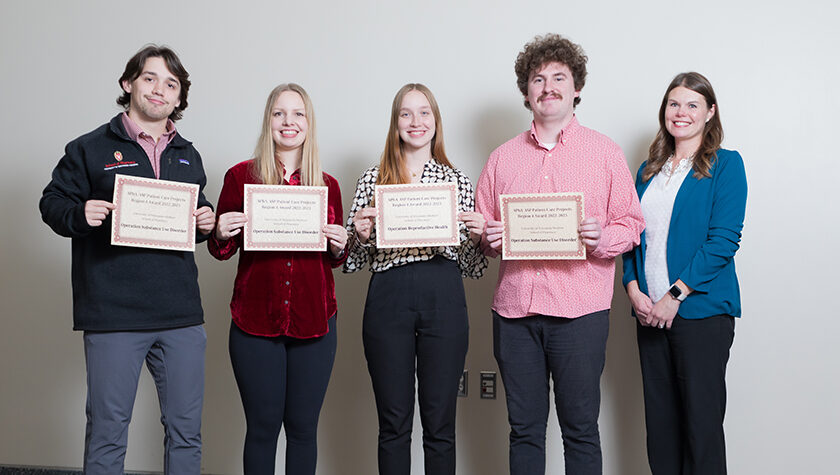
13
December

The American Pharmacists Association recognized WSPS’ Operation Immunization, Operation Reproductive Health, and Operation Substance Use Disorder for exceptional outreach in 2022-23
By Logan Underwood
Beyond filling prescriptions, pharmacists interact with a diverse array of patients and health conditions, educating and counseling patients, playing an incontrovertible role in the overall health of the community.
The outreach initiatives organized by the University of Wisconsin–Madison School of Pharmacy’s PharmD students in the Wisconsin Society of Pharmacy Students (WSPS) bolster the value and impact of pharmacists’ expertise. As the School’s chapter of the American Pharmacists Association Academy of Student Pharmacists (APhA-ASP), WSPS focuses their outreach into distinct “Operations” that each tackle a unique facet of health, from diabetes to over-the-counter medication safety.
Their high-quality and impactful community programming has earned them three APhA-ASP Region 4 Awards for 2022-23 at the fall 2023 APhA-ASP Midyear Regional Meeting, honoring their Operation Immunization, Operation Reproductive Health, and Operation Substance Use Disorder, in combination with MedDrop.
This success is certainly not new for WSPS. Following more than 20 awards over the past seven years — including the APhA-ASP National Innovative Programming award and the American Society of Health-System Pharmacists’ Outstanding Professional Development Project award in 2023 — this marks Operation Immunization’s third consecutive year in a row that the initiative has been honored with an APhA-ASP award.
“It is incredibly rewarding to see interest in our initiatives grow,” says third-year PharmD student Kelby Drogemuller, co-chair of Operation Reproductive Health.
Protecting the community
When COVID-19 vaccines first became available in 2021, Operation Immunization students led the charge to mobilize the School of Pharmacy’s student vaccinators across Wisconsin to help pharmacies administer the new vaccines and educate patients. Their incredible contributions — nearly 200 student volunteers delivered more than 18,000 doses — earned them a 2020–21 regional award.
Phanary Xiong and Clara Nickel, fourth-year PharmD students and co-chairs for the 2022–23 year, took the same approach, recruiting enthusiastic student vaccinators to expand vaccine access. Following a change in Wisconsin law allowing all trained student pharmacists to administer vaccines, the UW–Madison School of Pharmacy adjusted their curriculum for incoming classes and Operation Immunization got to work, creating more learning opportunities while the changes took effect.
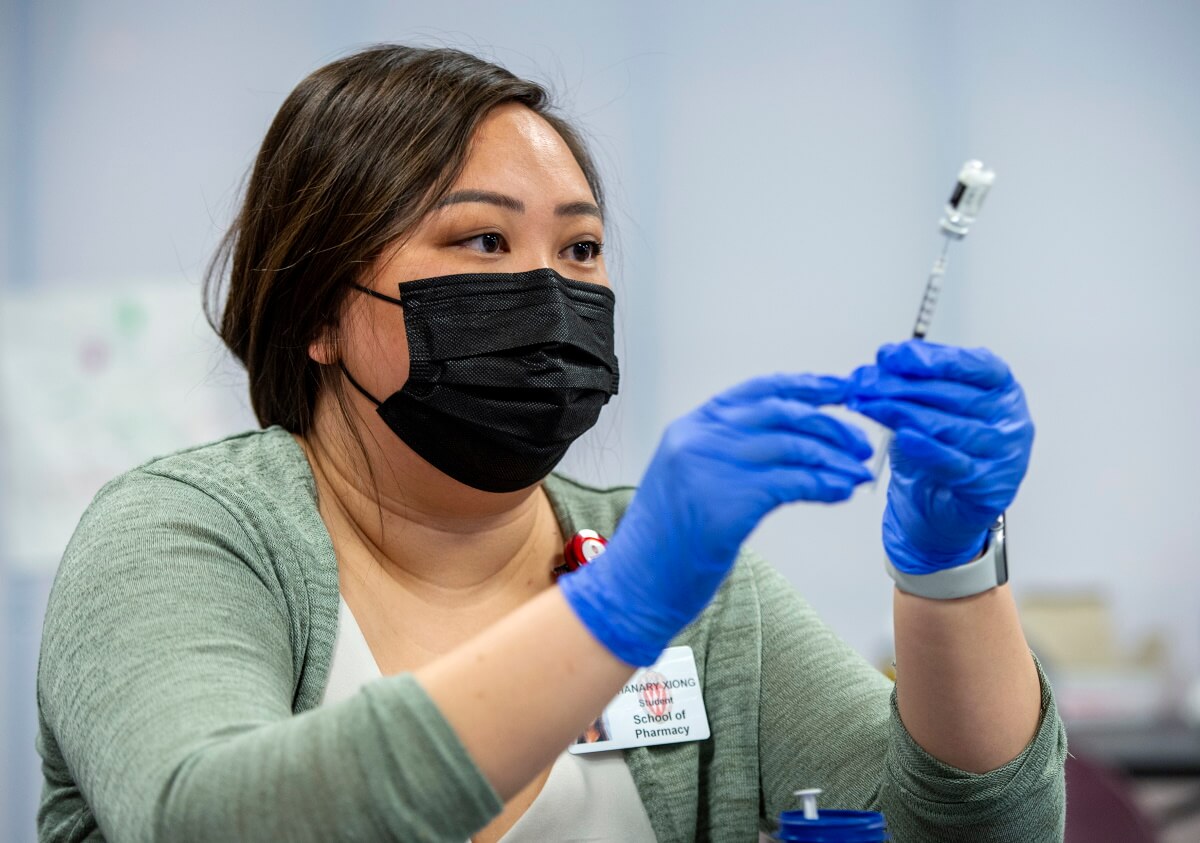
“One of our goals was to engage our WSPS membership with immunization training workshops,” says Nickel.
Across September and October 2022, Operation Immunization hosted eleven vaccine administration labs, training more than 100 first-year PharmD students.
Through partnerships with VaxPro, Oakwood Communities, and Forward Pharmacies, Xiong, Nickel, and their PharmD student volunteers delivered 1,643 flu vaccines and 1,597 COVID-19 vaccines.
“This involvement contributed to increasing vaccination rates in the local community, playing a crucial role in public health,” says Xiong.
This year posed another new vaccination challenge, as an outbreak of Mpox spread across each state in the U.S. Xiong and Nickel met the challenge, incorporating new trainings for their PharmD student peers.
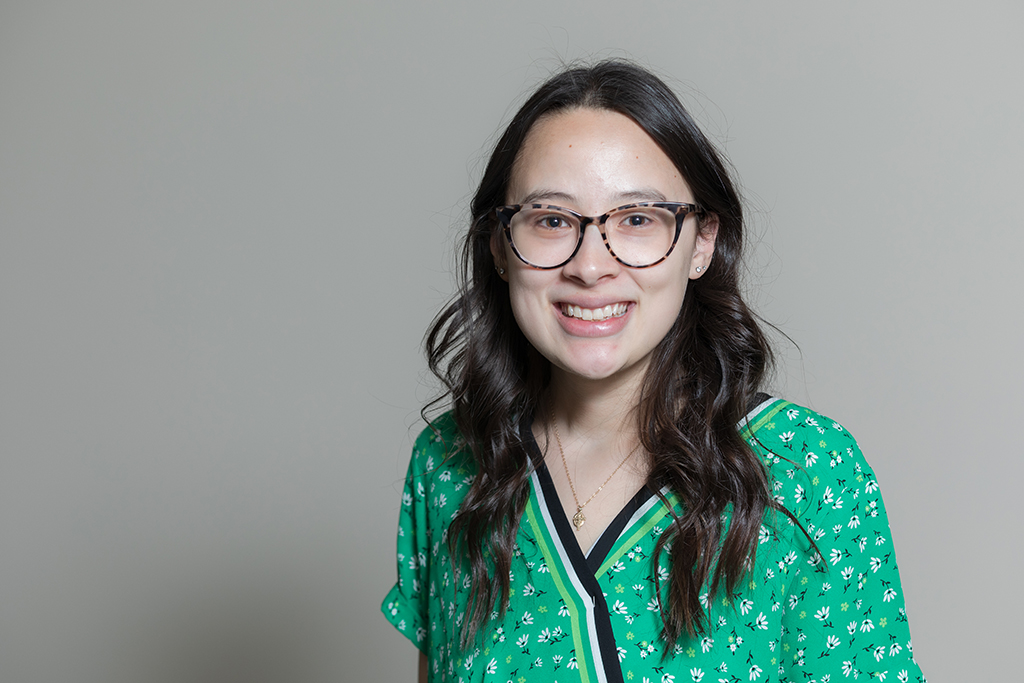
“When UW–Madison became one of the first large institutions to offer Mpox vaccinations to high-risk undergraduate students and faculty, our advisor, Professor Mary Hayney, worked with us to efficiently train our WSPS members with the skills to provide intradermal vaccines so we could quickly respond to the urgent need,” says Nickel.
Most vaccines are delivered as intramuscular injections. The Mpox vaccine’s intradermal delivery route isn’t typically covered in the immunizations training PharmD students receive. But through the workshops orchestrated by Operation Immunization, they trained 65 student pharmacists. The newly trained student vaccinators volunteered through University Health Services and the Pride Society at UW–Madison to safely administer more than 50 Mpox vaccines.
“Our goal was to focus on building knowledge and skills among future pharmacists,” says Xiong.
Reproductive health
Operation Reproductive Health is the newest of WSPS’ patient care outreach initiatives, created at the School in 2019 to focus on educating the community about contraceptive options, HIV prevention, mental health, and more. Another goal for the operation is to decrease the stigma around conversations centering around reproductive health.
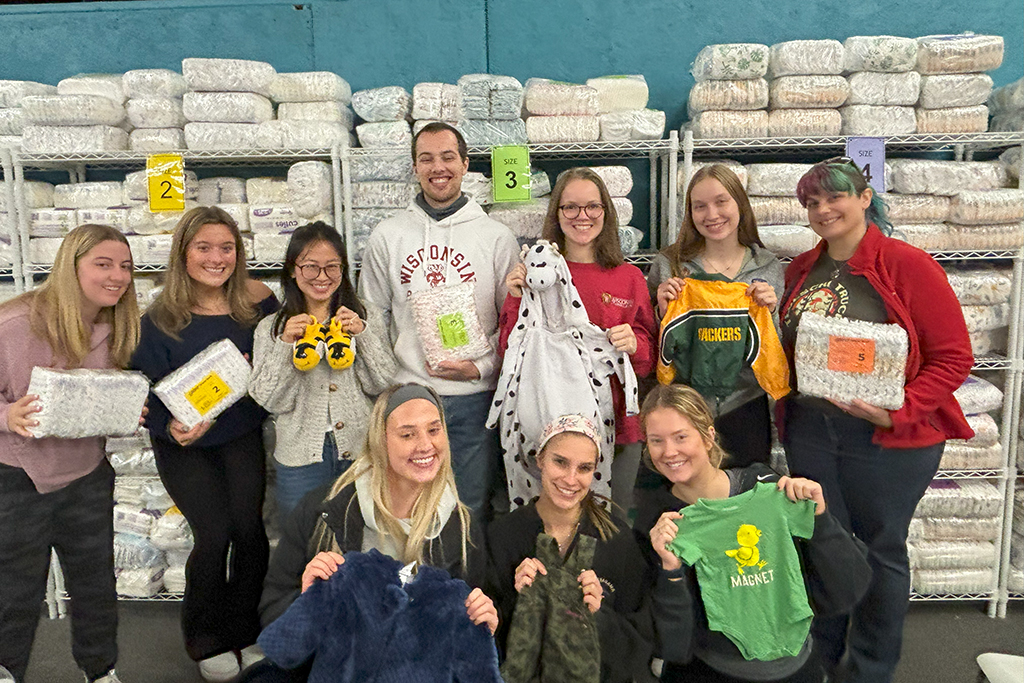
“Through this involvement, I’ve learned that pharmacists hold a large role in improving healthcare for all,” says Drogemuller, who has a focused interest in helping marginalized groups in the community.
Throughout the 2022-23 year, she worked to establish new connections and organize events around the Madison area. They held a total of eight women’s health activities, reaching more than 700 community members.
“As a newer operation, my main goal was to form meaningful partnerships that will last for years to come,” she explains.
One of the new partnerships forged was with Babies and Beyond, a Madison-based organization that provides families with diapers, formula, and food for their young children. Members of the Operation volunteered at their storefront, helping distribute donations and speaking with community members.
“My favorite part about this position was connecting with a wide variety of people,” says Drogemuller. “I believe the best way to learn about other groups of people is to directly work with them and learn from their unique perspectives.”
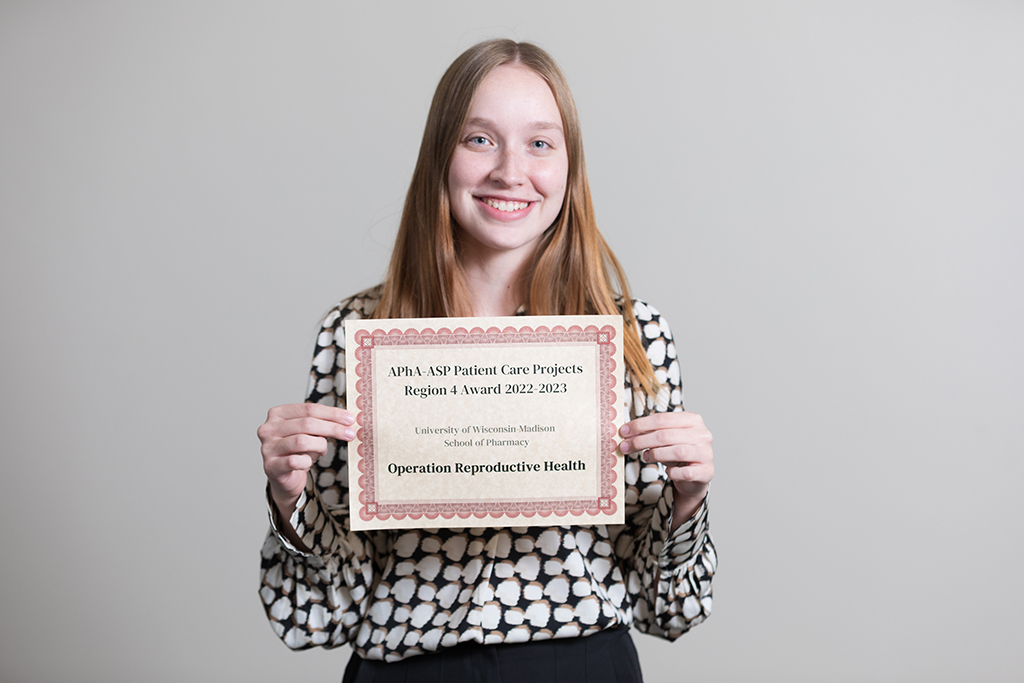
Drogemuller and co-chair Joyce Hu, a fourth-year PharmD student, also partnered with the Salvation Army to organize a holiday hygiene product drive, and they participated in the Neighborhood House Resource Fair, where they shared information about women’s cardiovascular health.
Receiving this recognition as a recently established initiative of WSPS is a testament to the hard work put in by Drogemuller, Hu, their PharmD student peers, as well as the group’s faculty advisor Marina Maes, assistant professor in the Pharmacy Practice and Translational Research Division.
“Co-chair was the perfect leadership role for me,” says Drogemuller. “I have the opportunity to work with some of the most vulnerable populations in our community and foster other student pharmacists’ enthusiasm for this initiative.”
Addressing medication misuse
As in previous years, Operation Substance Use Disorder visited local high schools to educate students about drug abuse, misuse, and disposal, reaching more than 100 students in three schools.
In the 2022–23 academic year, co-chairs Lukas Kelsey, third-year PharmD student, and Jenna Nordin, a dual PharmD/Master of Public Health student, wanted to further expand their outreach and potential impact by connecting with elementary schools as well. For the younger audience, they shared the basic dangers of consuming medication.
For Kelsey, spreading this important information is a personal mission.
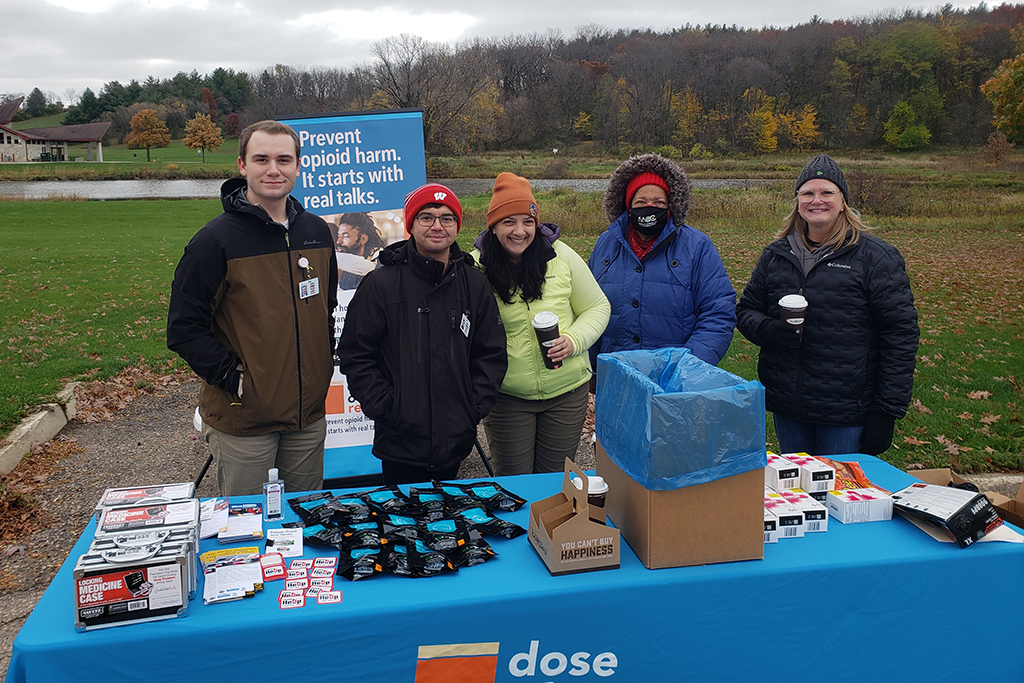
“I clearly see how these substances have affected many people in my community,” says Kelsey. “It’s been something I’m really passionate about.”
The Operation — with pharmacists Theresa Frey (PharmD ’09) and Erica Frazier as advisors — also hosts trainings on opioid reversal drug naloxone for School of Pharmacy students and staff, as well as other informative presentations.
“We’ve had a couple of speakers come in, including a pharmacist who actually lost his son to substance use disorder,” says Kelsey. “He got to share his perspective on all of the changes surrounding opioid prescribing and dispensing. We really focus on spreading awareness to the community and our pharmacy students as a whole.”
MedDrop, centered on the safe disposal of medication, was recognized alongside Operation Substance Use Disorder with the APhA-ASP Region 4 award. The initiative’s main events are bi-annual take-back days in which people in the community are able to drop off expired or unused medication at various locations in south-central Wisconsin.
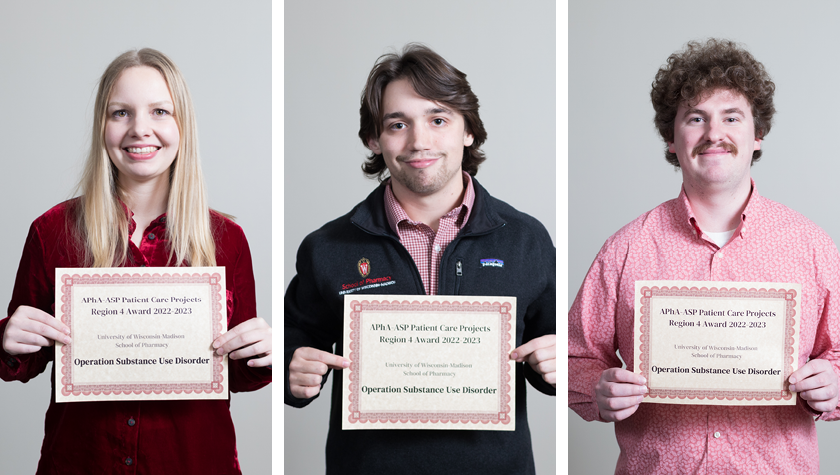
Led by co-chairs Isabel Wedig, fourth-year PharmD student, and Sawyer Fleming, third-year PharmD student, the group collected more than 2,000 pounds of unused or expired medication in 2022-23, reducing the risk of misuse and improving patient safety. Wedig says she is appreciative of the experience she’s gained from working with the Operation and faculty advisor Beth Martin (BS ’90, MS ’03, PhD ’06), professor in the Pharmacy Practice and Translational Research Division.
“It’s really helped me get a better understanding of how to talk with people,” says Wedig. “I’m now better able to help educate patients on how to store and dispose of medications.”
The real-world experience these PharmD students gain through their award-winning outreach, spanning patient care and collaboration, serves dual purposes: to help PharmD students prepare for their careers, and to improve the health of their community.
“It’s really valuable to get this hands-on experience,” Kelsey says. “It’s been great to see what impact you can make as a student.”


